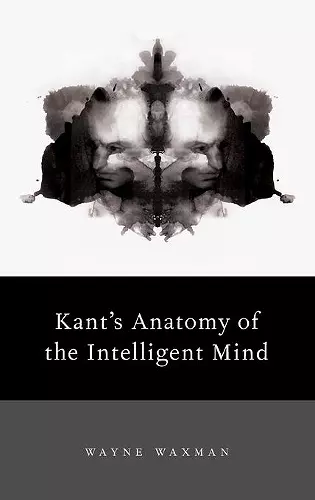Kant's Anatomy of the Intelligent Mind
Format:Hardback
Publisher:Oxford University Press Inc
Published:5th Dec '13
Currently unavailable, and unfortunately no date known when it will be back

In a 2005 editorial in the British newspaper The Guardian, Kant was declared "the undefeated heavyweight philosophy champion of the world" because he had the "insight ... to remove psychology from epistemology, arguing that knowledge is inevitably mediated by space, time and forms within our minds." This is an accurate reflection of the consensus view of philosophers and scientists that Kant's accounts of space, time, nature, mathematics, and logic on the Critique of Pure Reason are rationalist, normativist, and nativist. Here, Wayne Waxman argues that this is untrue. Kant neither asserted nor implied that Euclid and Newton are the final word in their respective sciences. Rather than supposing that the psyche derives its fundamental forms from epistemology, he traced the first principles of ordinary, scientific, mathematical, and even logical knowledge to the psyche. Aristotelean logic, in particular, exhausts the sphere of the logical for Kant precisely because he deduced it entirely from psychological principles of the unity of consciousness, resulting in a demarcation of logic from mathematics that would set virtually everything regarded as logic today on the mathematical side of the ledger. Although Kant derived his conception of the unity of consciousness from Descartes, he gave it new life by eliminating its epistemological and metaphysical baggage, reducing it to its logical essence, and grounding what remained on a wholly original conception of the a priori unity of sensibility. Thus, far from departing from the course charted by British Empiricism, Kant's anatomy of the understanding is continuous with, indeed the culmination of, the psychologization of philosophy initiated by Locke, advanced by Berkeley, and developed to its empirical outrance by Hume. "This is a superb and very important book. It is certainly one of the best books written on Immanuel Kant's Critique of Pure Reason." -Klaus Steigleder, Professor of Applied Ethics, Ruhr-Universität Bochum.
[T]here can be no doubt that Waxman offers a distinct alternative to many traditional interpretations of these texts as well as to traditional interpretations of the first Critique as a whole. And Waxman's intriguing, if controversial, interpretation of Kant's transcendental psychology will certainly be of interest to all scholars of Kant's first Critique. * Reed Winegar, Notre Dame Philosophical Reviews Online *
This is a superb and very important book. It is certainly one of the best books written on Immanuel Kant's Critique of Pure Reason. * Klaus Steigleder, Professor of Applied Ethics, Ruhr-Universitat Bochum *
ISBN: 9780199328314
Dimensions: 165mm x 236mm x 51mm
Weight: 992g
604 pages